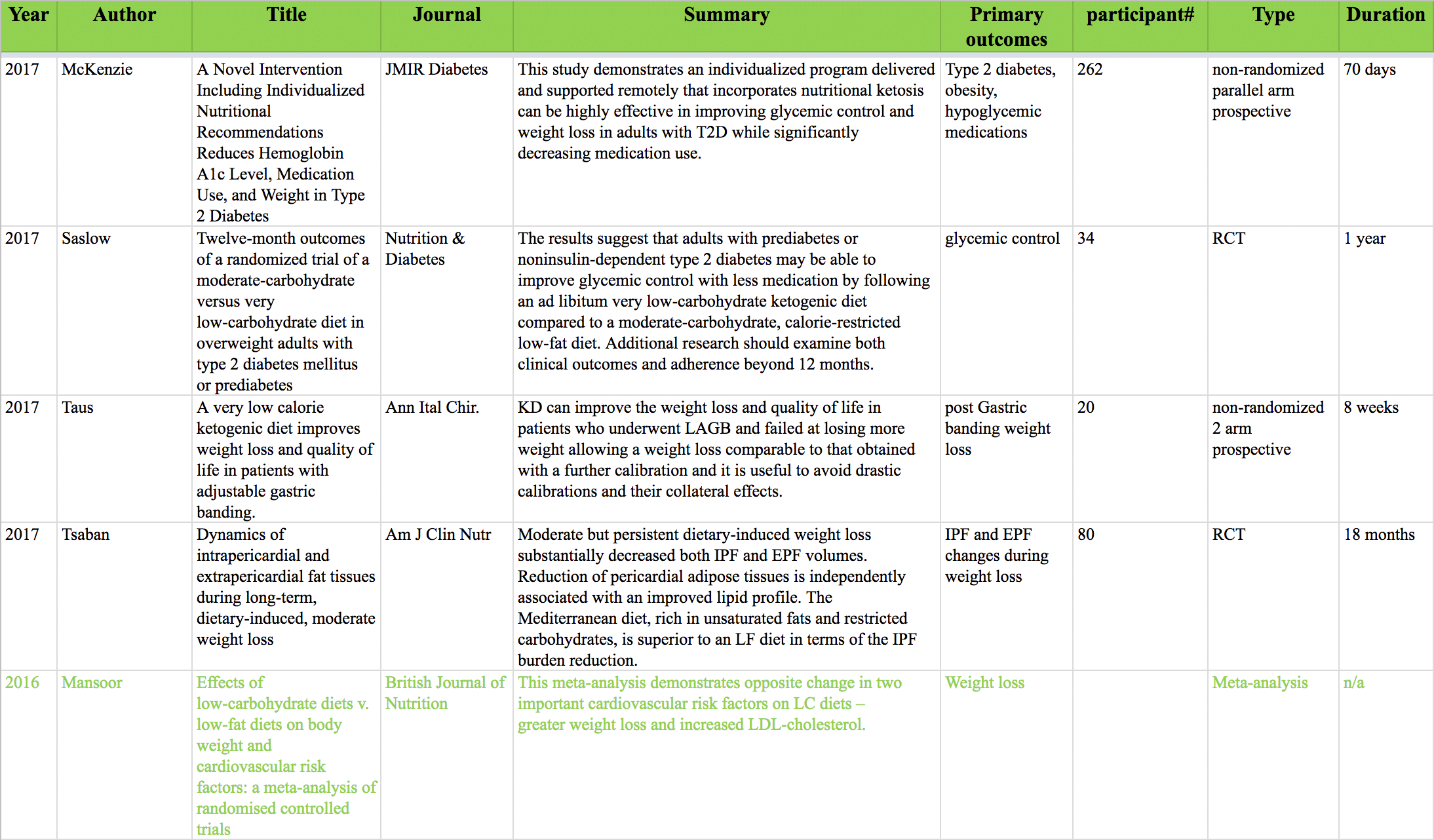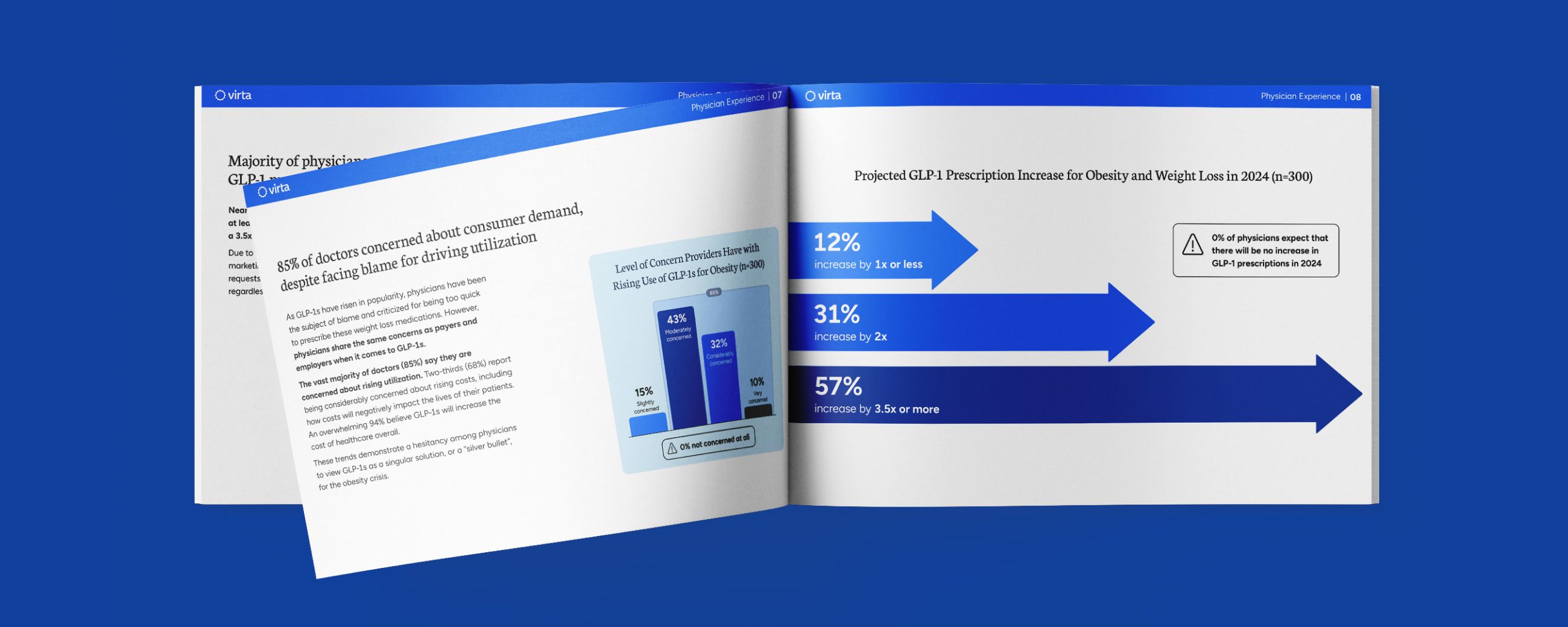
A Comprehensive List of Low Carb Research

A common criticism of low carb approaches to nutrition is that there is insufficient research. With my colleagues in the low carb and ketosis community, I've helped compile this comprehensive list of low carb research on weight and metabolic risk factors in humans so that you can see the results for yourself. A total of 6,786 people have participated in these 76 studies. 6 have lasted 2 years or more.
More research is needed in this field, and that's why I'm so excited to be the primary investigator in Virta's clinical trial.
See the full list here and check out the most recent research below!

2017 low carb studies
A Novel Intervention Including Individualized Nutritional Recommendations Reduces Hemoglobin A1c Level, Medication Use, and Weight in Type 2 Diabetes
McKenzie, JMIR Diabetes
Summary: This study demonstrates an individualized program delivered and supported remotely that incorporates nutritional ketosis can be highly effective in improving glycemic control and weight loss in adults with T2D while significantly decreasing medication use.
Primary outcomes: Type 2 diabetes, obesity, hypoglycemic medications
More data in spreadsheet here
Twelve-month outcomes of a randomized trial of a moderate-carbohydrate versus very low-carbohydrate diet in overweight adults with type 2 diabetes mellitus or prediabetes
Saslow, Nutrition & Diabetes
Summary: The results suggest that adults with prediabetes or noninsulin-dependent type 2 diabetes may be able to improve glycemic control with less medication by following an ad libitum very low-carbohydrate ketogenic diet compared to a moderate-carbohydrate, calorie-restricted low-fat diet. Additional research should examine both clinical outcomes and adherence beyond 12 months.
Primary outcomes: glycemic control
More data in spreadsheet here
A very low calorie ketogenic diet improves weight loss and quality of life in patients with adjustable gastric banding
Taus, Ann Ital Chir.
Summary: KD can improve the weight loss and quality of life in patients who underwent LAGB and failed at losing more weight allowing a weight loss comparable to that obtained with a further calibration and it is useful to avoid drastic calibrations and their collateral effects.
Primary outcomes: post Gastric banding weight loss
More data in spreadsheet here
Dynamics of intrapericardial and extrapericardial fat tissues during long-term, dietary-induced, moderate weight loss
Tsaban, Am J Clin Nutr
Summary: Moderate but persistent dietary-induced weight loss substantially decreased both IPF and EPF volumes. Reduction of pericardial adipose tissues is independently associated with an improved lipid profile. The Mediterranean diet, rich in unsaturated fats and restricted carbohydrates, is superior to an LF diet in terms of the IPF burden reduction.
Primary outcomes: IPF and EPF changes during weight loss
More data in spreadsheet here
This blog is intended for informational purposes only and is not meant to be a substitute for professional medical advice, diagnosis, or treatment. Always seek the advice of your physician or other qualified health provider with any questions you may have regarding a medical condition or any advice relating to your health. View full disclaimer
Are you living with type 2 diabetes, prediabetes, or unwanted weight?









